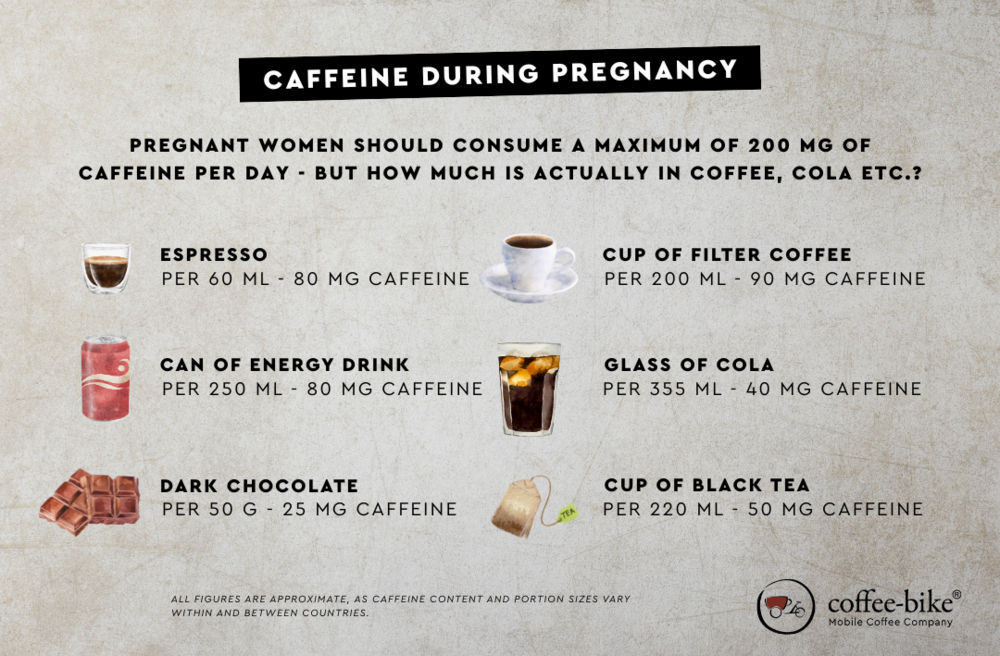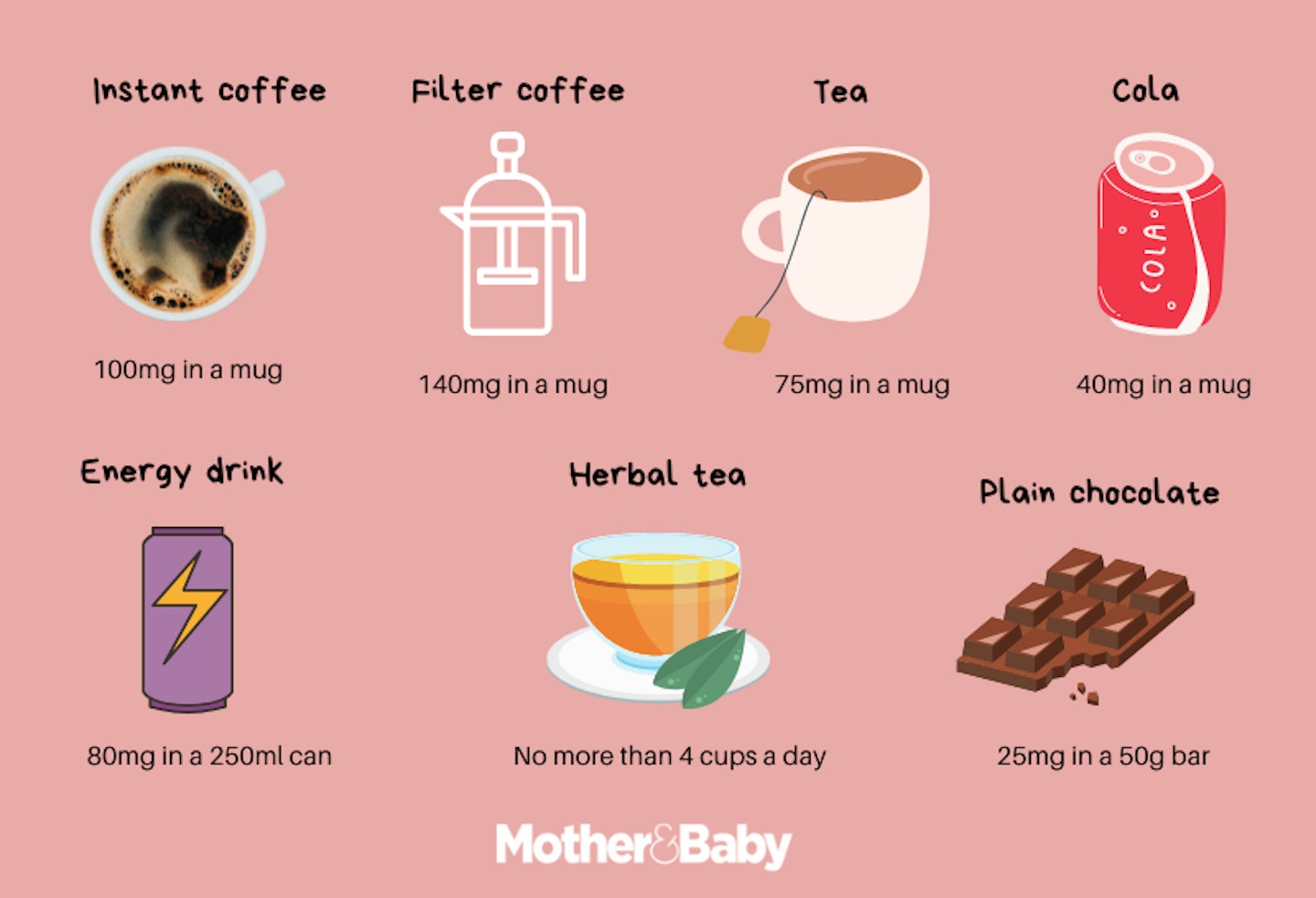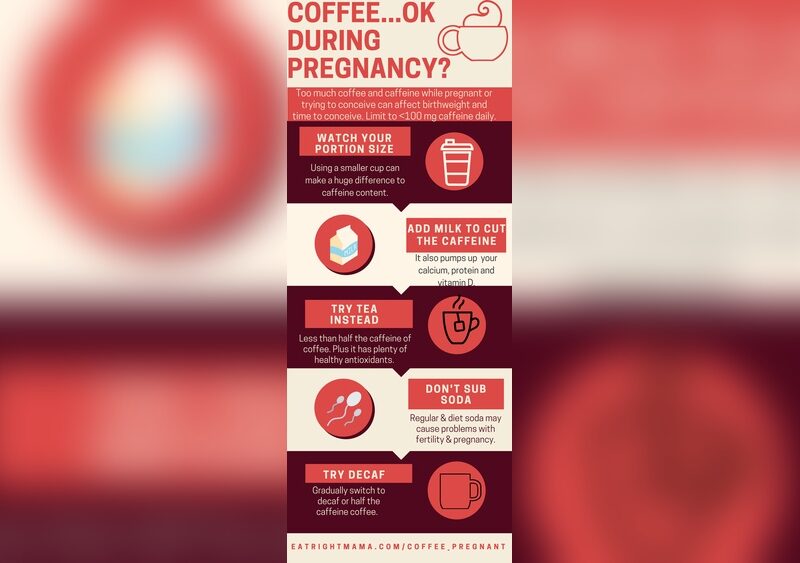Are you wondering if you can still enjoy your daily cup of coffee while pregnant? It’s a question many expectant mothers ask, but the answer isn’t always clear.
You want to keep your baby safe, yet coffee is such a comforting part of your routine. How much caffeine is too much? Could your coffee habit affect your baby’s growth or health? You’ll discover what science says about drinking coffee during pregnancy, the potential risks, and how to make choices that protect both you and your little one.
Keep reading to find out exactly what you need to know before that next sip.

Credit: coffee-bike.com
Caffeine And Pregnancy Limits
Caffeine is a common stimulant found in many drinks and foods. During pregnancy, it is important to monitor caffeine intake carefully. The body processes caffeine slower while pregnant. This means caffeine stays longer in the bloodstream and can affect the baby.
Understanding safe caffeine limits helps protect the baby’s health. It reduces risks like low birth weight and premature birth. Pregnant women should know how much caffeine is safe each day. They also need to check all sources of caffeine, not just coffee.
Daily Caffeine Threshold
Health experts recommend a limit of 200 milligrams of caffeine per day. This equals about one 12-ounce cup of coffee. Staying below this amount lowers the chance of negative effects on the baby. Exceeding the limit increases risks and stress on the baby’s development.
Every woman processes caffeine differently. Genetics, body weight, and metabolism affect sensitivity to caffeine. Some may feel jittery with small amounts, while others tolerate more. It is best to keep intake moderate and steady throughout pregnancy.
Sources Beyond Coffee
Caffeine is not only in coffee. Tea, soda, energy drinks, and chocolate also contain caffeine. Some teas have as much caffeine as coffee. Energy drinks often have high caffeine levels hidden in small cans.
Check labels carefully to add up total daily caffeine. Even decaffeinated drinks may have small amounts. Herbal teas usually do not have caffeine but verify to be sure. Being aware of all sources helps avoid accidental excess.
How Caffeine Affects The Baby
Caffeine is a stimulant that easily crosses from mother to baby during pregnancy. The baby’s body is still developing and cannot handle caffeine well. This can affect the baby’s growth and health in several ways.
The impact depends on how much caffeine the mother consumes. Even small amounts may influence the baby’s development. Understanding the process helps expectant mothers make informed choices.
Placental Transfer
Caffeine passes through the placenta quickly. This means the baby receives the same caffeine levels as the mother. The placenta does not filter out caffeine effectively. As a result, caffeine reaches the baby’s bloodstream almost unchanged.
The baby’s exposure lasts longer because caffeine stays in the fetal system much more than in adults. This can cause increased heart rate and reduced blood flow in the baby.
Baby’s Metabolism Challenges
The baby’s liver is immature and cannot break down caffeine properly. This means caffeine stays in the baby’s body for a long time. High caffeine levels can affect brain development and growth.
Slow metabolism of caffeine may increase the risk of low birth weight. It may also raise the chance of preterm birth or miscarriage. The baby’s body struggles to process caffeine, making it less safe.
Risks Of Excessive Intake
Drinking too much coffee during pregnancy can cause serious health problems. Caffeine passes through the placenta to the baby. The baby’s liver cannot break down caffeine well. High caffeine intake may increase risks to both mother and child. It is important to understand these risks to protect your baby’s health.
Miscarriage And Preterm Birth
Excessive caffeine increases the chance of miscarriage. Studies show higher caffeine intake links to early pregnancy loss. Drinking large amounts of coffee may also cause preterm birth. Babies born too early face many health challenges. Avoiding high caffeine reduces these risks significantly.
Low Birth Weight And Growth Issues
Too much caffeine can lower the baby’s birth weight. Low birth weight babies have higher risks of health problems. Caffeine may affect fetal growth by limiting blood flow. This can slow down the baby’s development in the womb. Limiting caffeine helps support healthy growth during pregnancy.

Credit: eatrightmama.com
Potential Benefits Of Moderate Consumption
Moderate coffee consumption during pregnancy may offer some benefits. Drinking small amounts of coffee can help pregnant women feel more awake and focused. It can also improve mood and reduce fatigue, common issues during pregnancy.
Coffee contains antioxidants that protect cells from damage. These antioxidants may support overall health for both mother and baby. Moderate caffeine intake has been linked to a lower risk of certain pregnancy complications in some studies.
Improved Mental Alertness
Caffeine in coffee stimulates the brain. It helps increase attention and concentration. This effect can ease the tiredness many pregnant women feel. A small cup of coffee may help maintain daily productivity.
Reduced Risk Of Gestational Diabetes
Some research suggests moderate coffee intake may lower the chance of gestational diabetes. Caffeine helps regulate blood sugar levels. Drinking coffee in moderation might support better insulin sensitivity during pregnancy.
Antioxidant Support
Coffee is rich in antioxidants like chlorogenic acid. These compounds fight harmful free radicals. Antioxidants promote cell health and reduce inflammation. They may contribute to a healthier pregnancy overall.
Factors Influencing Individual Response
Each pregnant woman reacts differently to coffee and caffeine. Various factors shape how caffeine affects the body during pregnancy. Understanding these factors helps manage safe coffee consumption.
Genetic Differences
Genetic makeup controls how fast the body breaks down caffeine. Some people metabolize caffeine quickly, while others do it slowly. Slow metabolizers may experience stronger effects from small amounts. Genes also affect sensitivity to caffeine’s impact on the heart and sleep. These differences explain why coffee affects pregnant women unequally.
Personal Health Conditions
Health issues can change how caffeine affects pregnancy. Conditions like high blood pressure or heart problems increase risks from caffeine. Liver function also matters, as the liver processes caffeine. If the liver works slowly, caffeine stays longer in the body. Pregnancy-related symptoms like nausea might also worsen with caffeine intake. Always consider personal health before drinking coffee while pregnant.

Credit: www.motherandbaby.com
Consulting Healthcare Providers
Consulting healthcare providers is essential for pregnant women considering coffee consumption. Each pregnancy is unique. Personalized advice helps ensure safety for both mother and baby. Doctors and midwives understand individual health needs and risks. They offer guidance based on medical history and current health status.
Talking openly with healthcare providers about caffeine intake helps clarify safe limits. Providers can explain how caffeine affects pregnancy and fetal development. They can also suggest alternatives or ways to reduce caffeine safely. Regular check-ups provide opportunities to adjust advice as pregnancy progresses.
Tailoring Caffeine Advice
Healthcare providers tailor caffeine advice to each woman’s condition. They consider factors like weight, metabolism, and pregnancy complications. Some women may tolerate more caffeine, while others need strict limits. Personalized plans prevent unnecessary worry or health risks. Providers may also review caffeine from other sources, such as tea and chocolate.
Addressing Concerns And Questions
Pregnant women often have many questions about caffeine and coffee. Healthcare providers listen carefully to these concerns. They provide clear, simple answers based on current research. Providers explain symptoms to watch for if caffeine affects pregnancy. They encourage women to report any side effects or discomfort. This open communication builds trust and promotes healthy choices.
Frequently Asked Questions
Is A Coffee A Day Ok While Pregnant?
A small amount of coffee, about one cup daily, is generally safe during pregnancy. Limit caffeine to 200 mg per day. Excess caffeine may increase risks like low birth weight. Always consult your healthcare provider for personalized advice.
Can Caffeine Affect A Baby In Pregnancy?
Caffeine crosses the placenta and may affect the baby’s developing liver. High intake increases risks like low birth weight and preterm birth. Limit caffeine during pregnancy and consult your healthcare provider for personalized advice.
Is It Safe To Drink Coffee During Pregnancy?
Moderate coffee intake during pregnancy is generally safe. Experts recommend limiting caffeine to 200 mg daily. Excessive caffeine may increase risks like miscarriage or low birth weight. Always consult your healthcare provider for personalized advice.
How Much Coffee Can Pregnant Women Consume Daily?
Pregnant women should consume no more than 200 mg of caffeine daily. This equals about one 12-ounce cup of coffee. Caffeine also exists in tea, soda, and chocolate, so consider all sources when calculating intake.
Conclusion
Moderate coffee intake during pregnancy is generally safe for most women. Keep your daily caffeine below recommended limits to reduce risks. Remember, caffeine affects each person differently, so listen to your body. Consider all sources of caffeine, not just coffee.
Always discuss your caffeine habits with your healthcare provider. This helps ensure both your health and your baby’s well-being. Staying informed supports a healthy pregnancy journey.








